Lifestyle
Flight fury: Inside story of KWAM 1, Emmason’s pardon
Published
5 months agoon

Fresh details have emerged on why the Federal Government backtracked on its earlier decision to punish popular Fuji musician, Wasiu Ayinde, aka KWAM 1, and a passenger on the Akwa Ibom-owned airline, Ms. Comfort Emmason, for misconduct.
Findings showed that KWAM 1 was compelled to apologise as part of conditions for intervention from the ‘powers that be’, just as the government withdrew charges against Emmason after reviewing the roles of the airline in the saga and the threats of multiple suits.
Hasty trial
On August 10, Emmason was removed from a flight from Lagos to Uyo after allegedly refusing to turn off her phone as instructed by crew members.
The situation escalated when she became physically aggressive, struck a flight attendant, and had to be restrained and escorted off the aircraft at the Murtala Mohammed International Airport.
Following that, Ibom Air imposed a lifetime ban on her from both local and international flights, citing its zero-tolerance policy toward violent or disruptive behaviour.
She was also arraigned and remanded in the Kirikiri Correctional Centre.
Ayinde, on August 5, caused a disruption at the Nnamdi Azikiwe International Airport, Abuja, when he attempted to board a ValueJet flight carrying a flask containing liquid beyond the permissible size.
When staff asked him to surrender it, he allegedly refused, poured its contents on the crew and security personnel, and then moved onto the tarmac to obstruct the aircraft from taxiing and delaying the flight’s safe operation.
The Nigeria Civil Aviation Authority petitioned the Inspector-General of Police, Kayode Egbetokun, to investigate the matter.
Ayinde was also placed on a six-month flight ban.
But Emmason’s prosecution for a criminal offence sparked outrage as a section of the public accused the government of bias, saying it failed to prosecute Ayinde, who allegedly committed a more grievous offence.
However, the Minister of Aviation and Aerospace Development, Festus Keyamo, SAN, announced on Wednesday that the government had directed the withdrawal of criminal complaints against Emmason and Ayinde.
Keyamo also said the government had told the NCAA to name Ayinde as an ambassador for airport security protocols.
The minister’s announcement was also greeted with mixed reactions, as some members of the public believe that the Federal Government pardoned Emmason in a bid to protect Ayinde, a well-known loyalist of President Bola Tinubu, from prosecution.
Saving airlines from suit
Insiders knowledgeable about the case told Saturday PUNCH that the government and the airline authorities needed to reach a compromise, de-escalate the matters, and save many of the individuals involved from prosecution and potential court cases.
According to a source, who is a top security officer at the Nnamdi Azikiwe International Airport, the airlines involved in the two cases were also not interested in pursuing their individual cases against Ayinde and Emmason having realised that the two passengers had “strong cases” against them if allowed to go to court.
He said, “The truth of the matter is that the aviation security, airline security, and the pilot, and all parties involved in Wasiu Ayinde’s case were at fault. The same thing with the Ibom Air case involving the lady who was stripped half-naked.
“I am aware that lawyers and stakeholders in the airlines and the aviation authorities reviewed the cases and opted for alternative conflict resolution to avoid lawsuits and counter-lawsuits. The Minister of Aviation was sincere in his statement when he said the decision was on compassionate grounds.”
Ayinde’s apology
Other insiders at the Ministry of Aviation told Saturday PUNCH that the reason for the reversal of what they called “hasty and harsh” decisions by both the government and the airlines was because preliminary investigations available to the government had shown that the airline was also culpable for the chaos at the airport in Emmason’s case.
“The soft landing or compromise is actually in favour of the airline in the case of Emmason. Everything was about protecting them from potential huge loss that would arise from any suit filed by the passenger,” said an insider, who spoke on condition of anonymity as she was not empowered to speak on the matter.
Another source, a top official at the ministry, told one of our correspondents that there were interventions from the ‘powers that be’ in Ayinde’s case, though the minister insisted on doing the right thing.
The source said, “The powers that be compelled KWAM 1 to apologise as a condition for intervening in the matter. They felt embarrassed about his attitude.
“After his apology, the industry was already speaking about Emmason, while still planning what to do about KWAM 1. The lady’s case became the talk of the town, especially after she was hastily remanded without hearing from her.
“The blowback from that action forced the hands of the government to find a general amicable solution to the matter.
“The resolution we all heard was a face-saving measure for both the government’s hasty and harsh decision on Emmason and also to find a soft landing for the musician, who is a friend to powerful people in government.”
Who filmed Emmason half-naked?
Many Nigerians were enraged after video clips of Emmason being dragged from the airplane half-naked went viral.
Ibom Air denied that any of its staff recorded or released the dehumanising clip to the public as Keyamo slammed the release of the clip.
Independent review of the clips making the rounds on social media showed that only an airport official could have made the recording and released the graphic clips to the public.
For instance, a 28-second clip showed calls to “drag her out” as three men, joined by the Ibom Air hostess, identified as Juliana Edward, pulled an unwilling Emmason out.
The person behind the recording, a female, could be heard responding on a walkie-talkie that “there is a situation here, standby”.
Emmason’s clothes also appeared to have been pulled up by an official, before her bosom was exposed.
Her lawyer, Adefunke Maria, alleged that the air hostess “wilfully ripped-off” her blouse while security men manhandled her.
Also, a five minute, 20 seconds clip revealed that only officials of Ibom Air, Federal Airport Authority of Nigeria and security agents were around the scene of the incident.
Most of them wore reflective jackets.
For a second time, the person behind the video could be seen with her walkie-talkie, which was clearly visible in the first few seconds of the clip.
A member of the team could also be heard confirming that an official was already making a recording of the violent acts of the passenger, while urging the colleagues to be mindful of their action on camera.
Co-passenger shares experience
An eyewitness on the flight, Ogebe David, stated that the female passenger was unjustly humiliated.
The lawyer, who presented his flight ticket to prove that he witnessed the incidents in-flight, stated that the flight attendant provoked the situation through what he described as unprofessional conduct.
“It is important to state that prior to meeting Miss Emmason on the aircraft by pure happenstance, I had never met her before. She is a complete stranger to me. In the same vein, I have never met any of the Ibom Air hostesses before Friday, to the best of my knowledge,” David told Channels TV.
He described what he characterised as a pattern of unjust treatment toward the female passenger.
His account contradicted early suggestions that the altercation was solely due to the unruly behaviour of the passenger.
“I am only speaking out now out of a moral duty and civic responsibility to speak the truth, so that everyone, whether highly placed or not, highly connected or not, can be treated fairly and justly in all circumstances,” he added.
Despite defending Emmason’s right to be treated respectfully, David condemned her outbursts in the videos circulating on social media.
I’ve forgiven everyone, says Emmason
Emmason on Friday took to her Facebook page to share in detail how she was allegedly harassed and intimidated on the flight.
She said she had no intention of being unruly, adding that she was insulted by the air hostess.
She lamented that she was dragged like a criminal after the incident degenerated.
The Facebook post, made around 6pm, read, “I boarded the flight peacefully like every other passenger, with no intention of disturbing anyone. I took my seat and waited for take-off.
“While we were still on the ground, the cabin crew started the normal safety checks, and that was when I was asked to switch off my phone.
“I politely explained that my phone had a faulty power button, and because of that I normally let the battery run down or use airplane mode instead. I also told the air hostess that if she could assist me, I would gladly hand over the phone for her to switch it off herself.”
Emmason said the first hostess who spoke to her was polite and understanding, adding that the second flight attendant spoke in a disrespectful tone.
The female passenger said, “She said, ‘I don’t have time for your excuses. Just switch it off.’ I calmly tried to explain again, but she cut me short and said, ‘If you don’t want trouble, you had better obey.’
“At that point, some passengers sitting close to me even intervened, and one of them helped me switch the phone off completely.
“Even after the phone was switched off, the same air hostess continued looking at me in a very aggressive way, almost as if she wanted a fight. I kept quiet because I didn’t want any trouble.”
Emmason noted that throughout the flight, she remained on her seat and did not disturb anyone.
She said, “I didn’t raise my voice, and I didn’t abuse or threaten any staff. Even the hostess who treated me harshly never came to apologise — she just kept watching me from afar.
“When we landed, everybody began to disembark. I waited for others to go first. As I was stepping out, that same hostess confronted me again and started saying things like: ‘You think you can threaten people here and go free. Wait, we will show you.’
“At that moment, I felt intimidated and embarrassed in front of other passengers. I asked her, ‘Madam, what exactly did I do to you?’ Instead of answering, she raised her hand as if she wanted to touch me again. I instinctively defended myself and told her not to harass me.
“Before I knew what was happening, they had already called security and labelled me as an ‘unruly passenger.’
“I begged them to at least watch the videos on the passengers’ phones so they would know the truth — but nobody listened. I was dragged off the aircraft like a criminal, still begging them to hear me out.
“At the airport police station, one of the managers from Ibom Air arrived and presented a completely different story, claiming that I assaulted their staff and threatened the safety of the flight. I immediately denied this and asked again for them to watch the videos, but my voice was ignored.
“Instead, I was moved straight to detention and eventually taken to Kirikiri, even though I kept insisting I was innocent.
“Everything I went through started from a faulty phone power button and a hostess who chose to abuse her authority instead of simply helping a passenger.
“I have forgiven everyone involved — but I felt it was important to finally share the truth of what happened, because a lot of people still don’t know my side.
“To everyone who stood up for me when I couldn’t speak, to everyone who prayed and fought for my freedom — thank you. God bless you all.”
‘No romance behind 500,000 job’
Meanwhile, the Special Adviser to the Delta State Governor on Media, Success Ossai, explained why he offered a N500,000 monthly salary job to Emmason.
In an Instagram post on Wednesday, Ossai announced that a monthly salary of N500,000 had been secured for the female passenger in the state.
The package, according to Ossai, also includes flight tickets, accommodation in a five-star hotel, a guided tour, and a ticket to the Delta Social Media Summit scheduled for August 28 in Asaba.
Ossai said the summit would enable her to interact with others, share her experience, and inspire people to avoid negative conduct.
Speaking in an interview with Saturday PUNCH, the governor’s aide clarified that the gesture was not from the state government but a personal decision to help Emmason reintegrate into society.
While dismissing speculations of having a romantic interest in her, he said, “I’m a married man and a faithful man. I can never get myself involved with such a thing. I am just offering harmless assistance to her.
“The gesture shown to the passenger wasn’t from the state government. It’s my personal gesture. She has shown remorse for what she did. Whatever has happened has happened. She went to Kirikiri prison and came back. It is time to support her as well.”
Reacting to criticisms that his offer could encourage unruly behaviour among air passengers, Ossai disagreed, citing global examples of rehabilitating offenders into advocates of good conduct.
Asked why he extended the offer despite Emmason not being from Delta State, Ossai said, “In Delta State, we don’t discriminate. We offer help to people, whether you are from Delta State or not. We are first Nigerians before anything else.”
He noted that his expectation was for Emmason to become disciplined, self-reliant, and a job creator.
Lawyer files N500bn suit
Meanwhile, a public interest lawyer, Ayodele Ademiluyi, has instituted a N500bn suit against the Federal Government, the Nigerian Civil Aviation Authority, and other parties at the Federal High Court in Lagos, accusing them of grossly violating the rule of law in the handling of the two aviation incidents.
The case, marked FHC/L/CS/1632/25, named as respondents: the President of Nigeria, the Attorney-General of the Federation, Minister of Aviation, Festus Keyamo (SAN), NCAA, the Federal Airports Authority of Nigeria, Ibom Air, ValueJet, the Nigerian Correctional Service, King Wasiu Ayinde, the Nigerian Police Force, the Governor of Akwa Ibom State, the state’s Attorney-General, and the Airline Operators of Nigeria.
Speaking at a press briefing on Friday, Ademiluyi, who also serves as convener of the Movement for Justice and Secretary of the Radical Gender Movement, said the legal action was aimed at defending public interest and holding aviation stakeholders accountable.
According to him, the dispute goes beyond the individuals involved, exposing deeper institutional weaknesses.
The lawyer faulted the disparate treatment given to both cases, alleging that KWAM 1 faced no legal repercussions, while Emmason was subjected to swift punitive action.
“Our aviation system needs a complete overhauling. We cannot allow impunity to reign or degenerate into a banana republic where someone can stop a plane with their bare hands and walk away without consequence. It’s a gross imbalance. There was no arrest, no arraignment, no prosecution of Mr. KWAM 1.
“In fact, he was rewarded with a brand ambassadorship for the aviation sector. What message does that send to the public?”he stated.
Ademiluyi insisted that rewarding the musician with an ambassadorial role was inappropriate.
“If someone can stop a plane with their bare hands and be appointed a brand ambassador, it sends the wrong signal,” he said.
He also accused the Minister of Aviation and Aerospace Development, Keyamo, of taking sides.
The lawyer criticised the Airline Operators of Nigeria’s handling of the Emmason matter, describing their role as overreaching, saying, “The central issue remains: Mr. Kwam 1 is walking the streets free. That is a big slap on the rule of law. The suit we have filed is a public interest action. The collective interest of the polity is at stake,” he said.
Ademiluyi urged the court to use the matter as a landmark opportunity to affirm that no individual, regardless of prominence, is beyond legal accountability.
FOLLOW US ON:
You may like
-


PHOTOS & VIDEO: Fire razes part of Ogun free trade zone, Igbesa
-


Demolition notice: Ogun communities cry out, call for Gov Abiodun’s intervention
-


Full List Of Countries Nigerians Travel To Without Visa
-


Why Buhari Appointed Me As Minister – Lai Mohammed
-


PHOTOS: NDLEA Nabs 80-Year-Old Drug Lord Again, Intercepts Tramadol-Laced Mannequins
-


Kano Gov Meets Tinubu In France After Secret Meeting With Kwankwaso
Lifestyle
PHOTOS: Meet Prince Abimbola Onabanjo Of Ijebu Land(the New Awujale Of Ijebu Land Elect)
Published
2 days agoon
January 9, 2026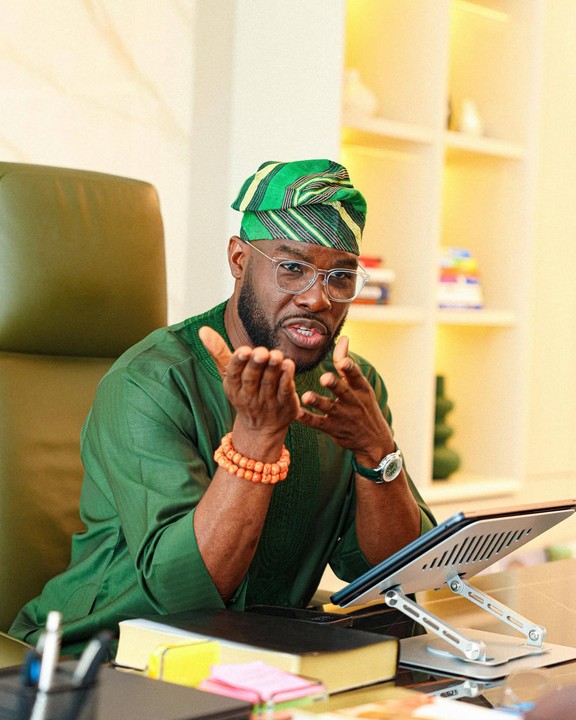
I have heard that one of the strong ọmọ ọba who may likely clinch the highly exalted stool of the next Awujale of Ijebu Land, according to some reports, is Prince Abimbola Onabanjo.
Prince Abimbola Onabanjo hails from the royal family of Fusengbuwa in Ijebu-Ode. He is a 2007 graduate of Banking and Finance from Lagos State University (LASU) and has undergone several Graduate Business Executive trainings at prestigious institutions, including Harvard Business School, Columbia Business School, and The Wharton School, University of Pennsylvania.
Popularly known as Prince Abimbola among friends in Ijebu and Lagos, he is a young businessman with close to 20 years of experience. He is the Chief Executive Officer (CEO) of Kleensteps Holdings, Extol Securities, and KMF Oils and Gas Limited.
Beyond his business accomplishments, he is also a philanthropist who has contributed immensely to several charitable projects across Ijebu Land in recent years. Few years ago, he reportedly committed 25m naira to 25 schools across Ijebu Ode as part of his vision for long term development of the land.
The young Prince had also in the past support the rehabilitation of road projects in Ijebu including the Balogun Court, Ojusgagbola Avenue, Abusalawu Street, and sections of Osipitan road. And there are many community projects like this, done from time to time.
Well, as the selection and ascension process is currently ongoing, I pray that the family heads, in choosing among the eligible princes, will do the needful.
A few weeks ago, I wrote about another prince, Dr. Adekunle Hassan, a 75-year-old ophthalmologist.
Many reactions suggested that people would prefer the next Awujale to be young rather than elderly. Whatever the reasons may be, I hope this charming Prince Abimbola satisfies that wish 😊.
My foremost concern is fairness in the process and that only the legitimate and rightful ruling house as recognised in the Gazette should be allowed to produce the next king, and not ganusi from any corner. This is how we properly protect our heritage for posterity.
As a people, we must learn to wait for our turn.
I also hope that whoever emerges as the next Awujale will be blessed with wisdom, knowledge, and deep understanding of the sacred role of a traditional ruler in Yorubaland, as one who will be seen as a father to all, without prejudice to social class, religion, or age.
And one who will rule with wisdom and peace, and bring meaningful development to the land through the support of sons and daughters of Ijebu, as well as through strong networks in society.
May the best prince emerge.
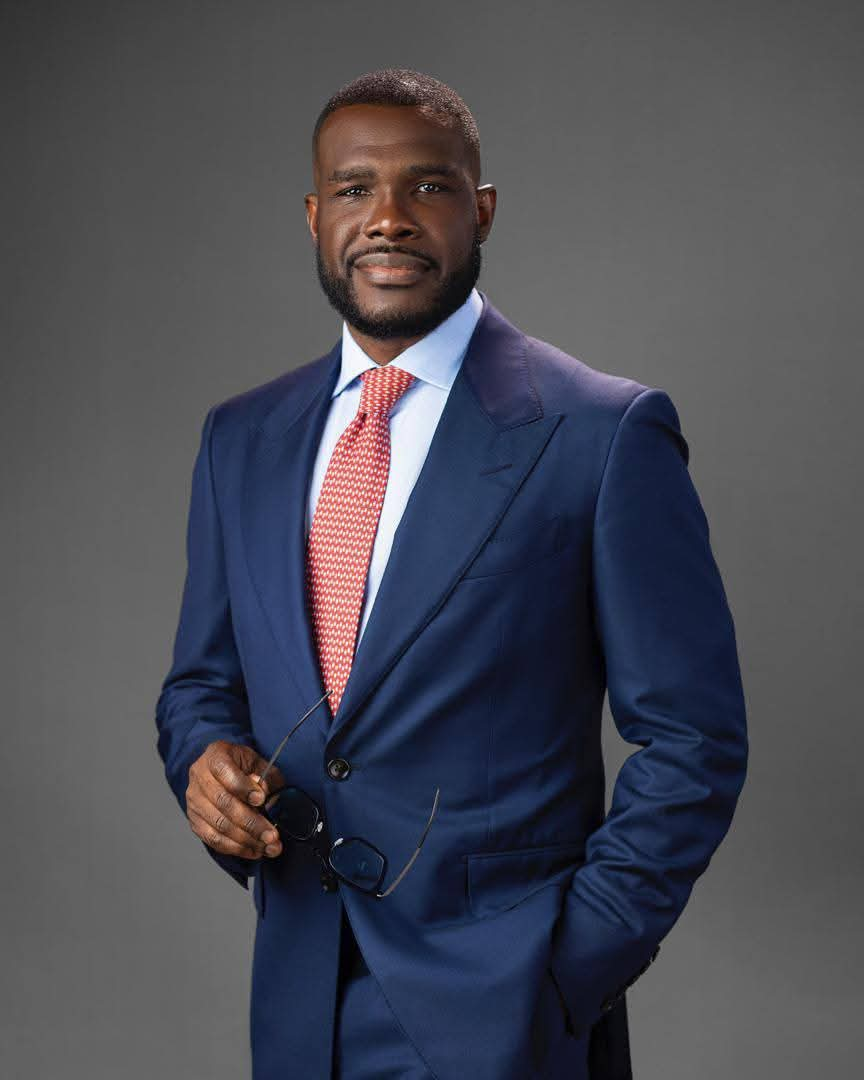

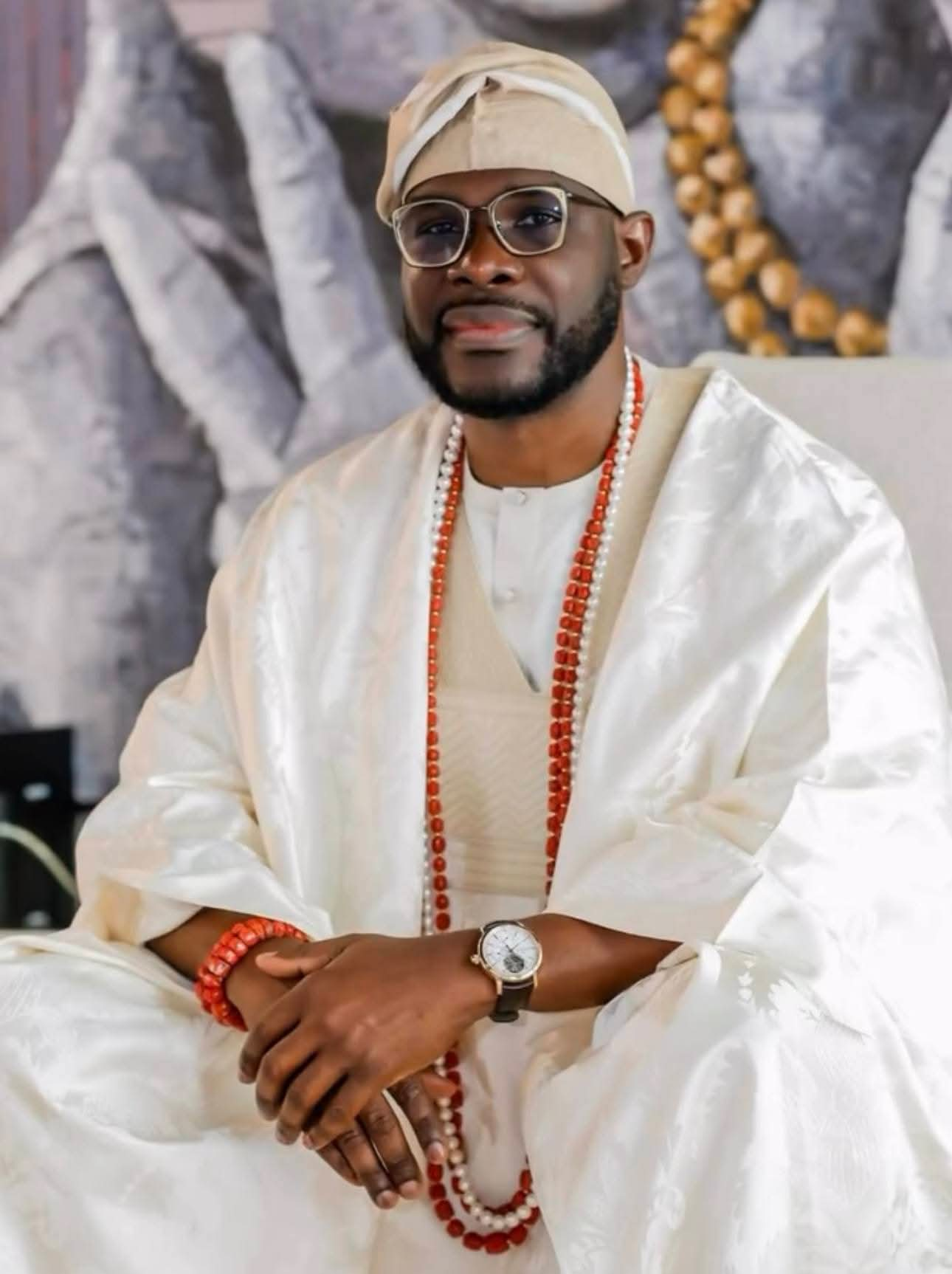

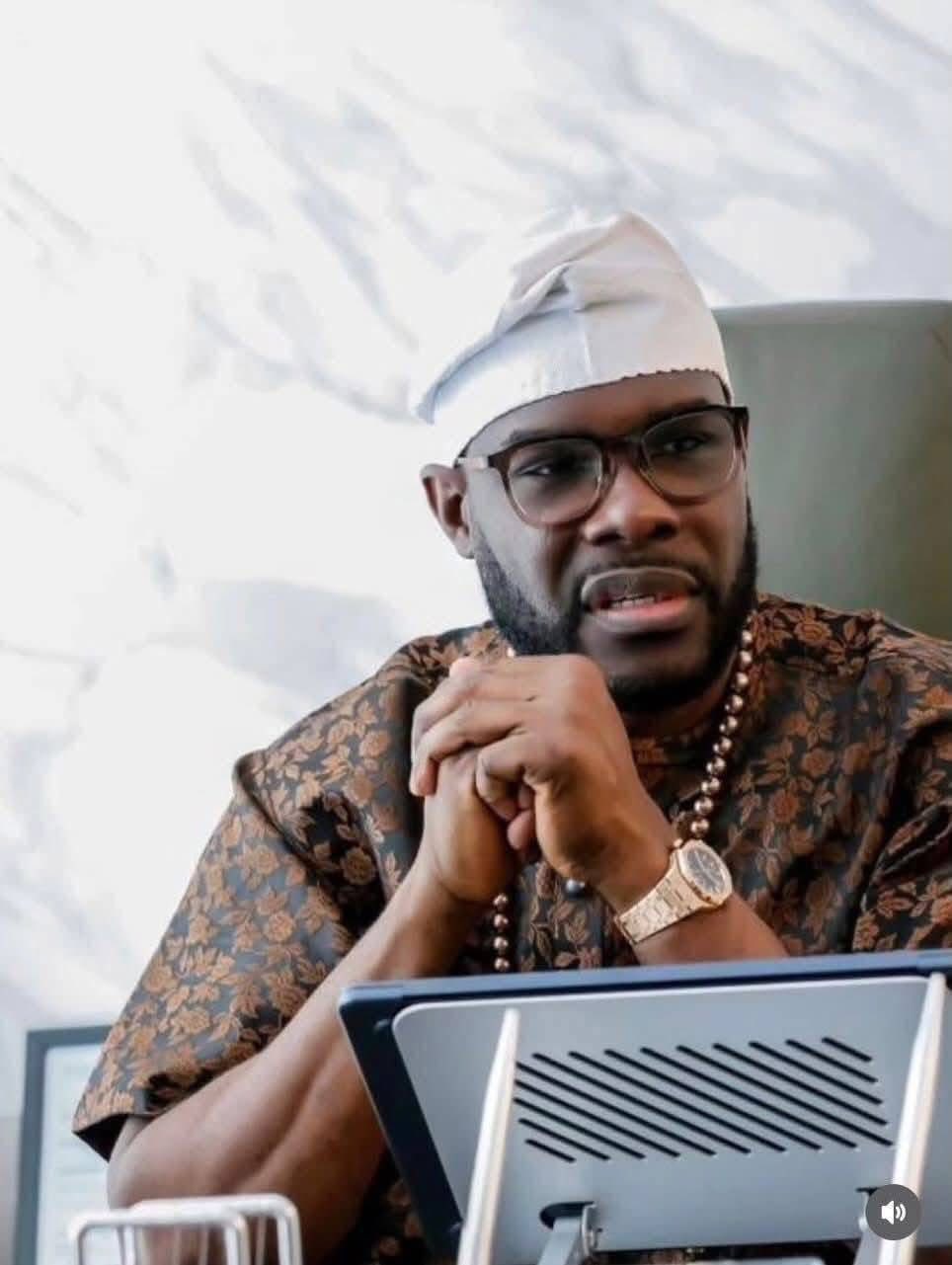
FOLLOW US ON:
Lifestyle
PHOTOS: Nollywood Actress Allwell Ademola was finally la!d to rest in Lagos
Published
2 days agoon
January 9, 2026
Nollywood actress and film producer Allwell Ademola was laid to rest on Friday at Atan Cemetery, Yaba, Lagos State.
It was reported that the actress died on December 27, 2025, at the age of 49.
Colleagues from the film industry, including Afeez Abiodun, Rotimi Salami, Kunle Afod, and Abiola Adebayo, among others, attended the burial to pay their last respects to the actress, who was widely known for her role as “Mama Kate” in the 2018 film “Ile Wa.”
In viral videos seen by this newspaper, the actors who attended the final rites were visibly emotional, breaking down in tears as they poured sand on Ms Ademola’s coffin, which had already been lowered into the grave.
During a brief sermon at the cemetery, the pastor who officiated the burial urged attendees to reflect on their lives while they still had the opportunity.
Reminder
He said the burial served as a reminder that everyone would one day face the same end.
He added that the moment should prompt deep reflection on how one’s life journey would conclude, particularly for those harbouring malice or engaging in wrongdoing.
The pastor said, “Then you will discover that nobody has time. The will of God is that this should help us mend our ways before our Maker. He said the righteous will always consider this in their hearts. What are we going to do with this? She has lived her life. She has run the race and has gone to meet her maker, but what we are doing here is for you and me. As for her, she is rejoicing in the bosom of Abraham.
“How will you end your journey? That malice, wickedness, “I will not agree” — who knows what is next? That is the million-dollar question before us today. Because in the next few days, nature has a way of putting forgetfulness in things. But will you remember that one day it will be my turn, just as it is her turn today? What God expects of us when we see things like this is to look up to God and say, ‘Father, help me to make the best of the time that is left.’”
Candlelight procession and service of songs
At the candlelight procession and service of songs, actors gathered to offer special prayers in memory of their late colleague.
The event, which took place on Thursday, was attended by prominent figures in the industry, including Odunlade Adekola, Saheed Balogun, Bolaji Amusan, Iyabo Ojo, Fausat Balogun, Eniola Ajao and Fathia Balogun. Many attendees wore customised white T-shirts bearing Ademola’s portrait as a mark of tribute.
In an emotional moment captured on video, Salami, widely regarded as one of Ms Ademola’s closest friends in the industry, delivered a heartfelt tribute.
Fighting back tears, he asked for forgiveness on behalf of the late actress.
“If there’s anyone Allwell has offended, directly or indirectly, please, forgive her and keep praying for her. I think the only thing we can actually do is find a way, in unity, to keep her legacy. Even if she’s gone, let all that she has done stay with us and be with us.”
Salami also announced that he would offer one day of free work to anyone who approached him for a film project.
Apology from Allwell’s brother
Meanwhile, one of the late actress’s brothers issued an apology to actress Ojo over remarks he had made following his sister’s death.
He offered the apology during the service of songs held in her honour. Previously, a video that went viral showed him criticising some of her colleagues for their public tributes at the time of her passing.
In the video, he said, “All the ‘Rest in Peace’ messages and public displays of love are fake and hypocritical. Where was this love when she was alive? When she produced Eniobanke, none of you promoted it. You all claimed to be friends, yet you never supported her work or career, even though she supported many of you. During the Jagun Jagun production, no one called her or offered her a role.”
“Some of you, the likes of Lateef Adedimeji, Owonikoko, Iyabo Ojo and others, came to our house to shoot movies, yet you never found it worthy to stand by her. If you couldn’t support her while she was alive, don’t perform loyalty now that she is gone.”
However, Ojo, a mother of two, responded publicly to the claims, affirming that she had supported the late actress during her lifetime.
She wrote, “I oversupported your sister when she was alive, when she was building her career as a Producer and director, I featured in her movies countless times for free, and I also supported her financially and emotionally. May her beautiful soul continue to rest in perfect peace,” she said.
While apologising, he said, “Please ma, don’t be offended. I did not mean to abuse you; I was not referring to you at all.”

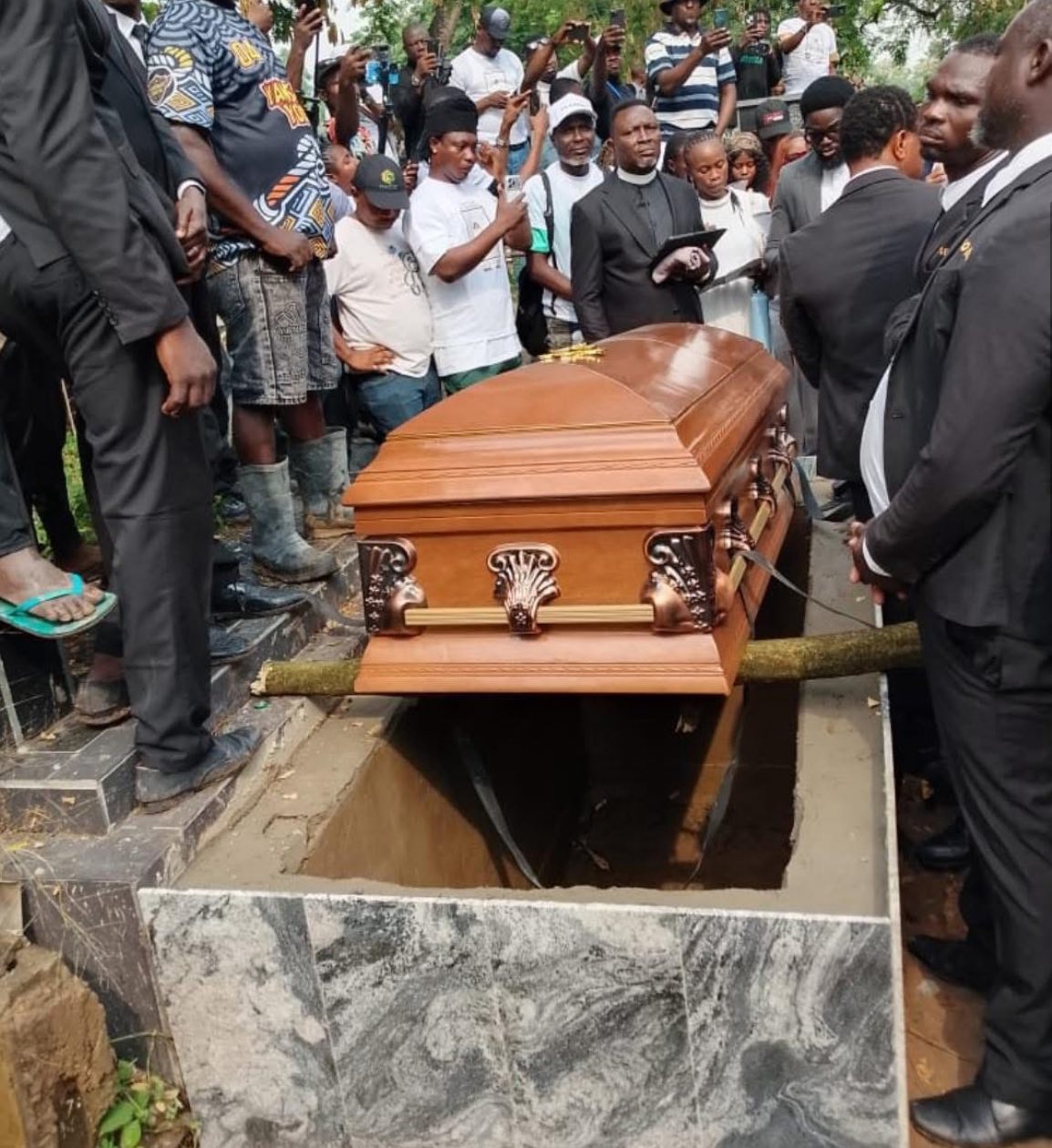

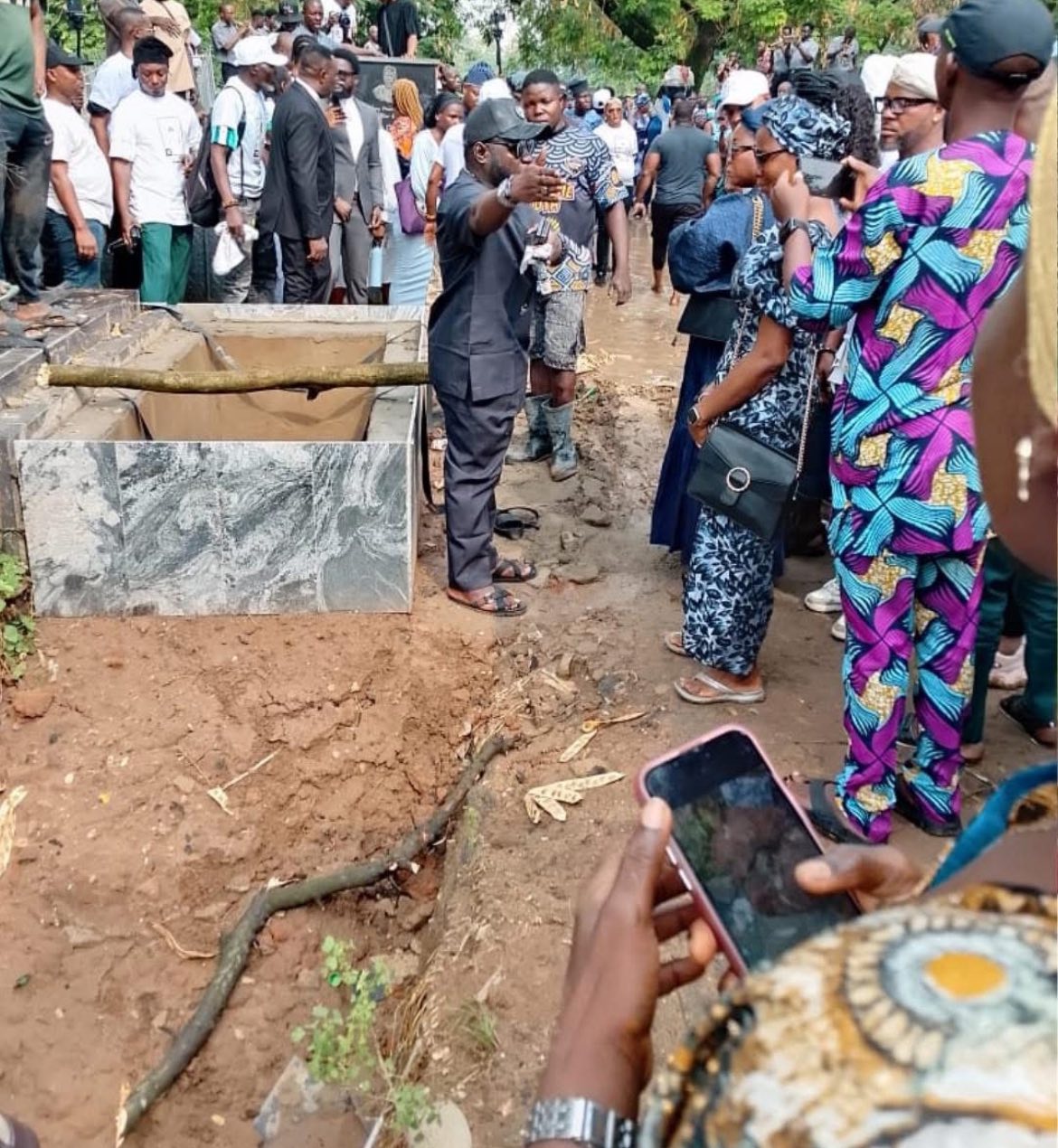




FOLLOW US ON:

One major issue that caught the attention of Nigerian writers, historians, journalists and linguists amongst others in January 2020, was the adoption of 29 Nigerian coinages and words from, especially Yoruba and Hausa languages, into the Oxford English Dictionary. Words and colloquial, such as danfo, okada, buka, k-leg, to eat money, next tomorrow, chop-chop, gist, sef and 20 others were officially accepted for everyday use as part of the English language.
There was widespread ecstasy generally amongst many Nigerians – both the lettered and the unschooled masses were united in their celebration of this recognition, especially coming from our former colonial masters – because the British that gave us a lingua franca, now were accepting our own languages, our own native words to be part of English language, after several of us were caned by British-tutored Nigerian teachers for speaking “vernacular” in primary schools in those days. You will agree with me that the joy is not unfounded. Filipinos perhaps, felt a similar joy in 2015 when 40 Filipino-coined words and slangs were also added to the Oxford English Dictionary.
Is it also not victory at last, even if in part, for Afrocentric scholars and writers who are foremost critics of the prejudiced nexus between language and power? Several of them have argued vehemently and vowed not to italicise coinages and words from their native languages in their critiques and creative writings. Although they have continued to write in the borrowed languages of French, English and Portuguese. This pseudo victory at least reinforces their stance, showcasing fruits from their activism.
This opening digression was inescapable for me from the dreadful topic of this write-up: Why Yoruba language may become extinct! This is because the Oxford English Dictionary’s action finally forced me to sit down and write this essay that has been pleading for my attention for several months now. Anyway, back to the issue. I could have generalised the topic by saying that several Nigerian languages may become extinct if we don’t make purposeful efforts to halt their adulteration, abuse, disuse and sometimes disdain by their native speakers. Yoruba language in this instance is a euphemism for conquered languages of the world, not just Nigerian or African. It represents languages, whose native speakers are the proletariats in the world order. From prehistoric times to modern days, power relations have always defined human relations; language has remained one of the major instruments of conquest. This is one disorder that the world has not been able to re-order and that may remain with humanity for centuries to come.
Now, you may say Yoruba language is not one of the languages listed as critically endangered by the United Nations Educational, Scientific, and Cultural Organisation. Then, it means that you are not getting the point. The viewpoint I am expressing here is that the visible or invincible power of a person or a group of persons over others, determines the norm for all and what is acceptable as public interest, including the language that would be internationally used for socio-political and economic interactions, irrespective of interest of the peripheral groups in their mother tongues or any other issue.
Let’s go memory lane for clarity. Are you aware that the English language is not even native to the English people or the earliest inhabitants of the place known as Britain today? This may shock a number of people except scholars grounded in the history of English language. According to historians, the people of modern day Britain spoke what is known as Celtic language, which itself is a mixture of Indo-European languages. English language as known today to Her Majesty – the Queen, her subjects and ourselves – the emancipated natives of her former colonies, was introduced by “Germanic tribes” said to have invaded Britain sometimes in the 5th century. Although a small populace in the United Kingdom still speak Scottish and Irish languages, which are parts of the Celtic languages, English, the language of the invaders, has remained the flagship of the United Kingdom’s languages. The name England itself has its root from the Germanic tribes.
To further drive home the point that power relations determine accepted language and determine “who gets what, when and how”, as attributed to the political scientist, Harold Lasswell, let me also remind political historians that French was the official language of England for almost 300 years, from mid-11th century to mid-14th century. This was also imposed on England by the invading Normans and French army that defeated the then King Harold II of England, and thereafter forced the people to speak French for official interactions for three centuries.
That Bishop Ajayi Crowther interpreted the English bible into Yoruba language. That J. F. Odunjo’s popular “Iselogunise” Yoruba poem has remained evergreen and known across the globe? That Hubert Ogunde, Moses Olaiya, Idowu Philip, Kola Ogunmola and lot of others promoted Yoruba language through theatre and drama. That even Brazil in faraway South America recognises Yoruba language as one of its official languages. That the Yoruba language has also remained a major language in Nigeria, and it is being used in the Republic du Benin, Togo and even amongst infinitesimal populations of Yoruba people across the globe, may not prevent its extinction!
Recall we are using the Yoruba language as a euphemism for languages not directing world order, and therefore not considered as world power in this discourse. The point is art, literature and public outcries would not save any language from extinction, except its speakers are recognised for their economic power, military prowess, massive scientific innovation, giant strides in Information, Technology and Communication, medical contributions to well-being and wellness of humanity. Such languages may eventually give way.
That is why a German professor, who is very fluent in English language, may come to Nigeria and deliver his speech in German, and except that Nigerians and everyone else follow his/her discourse via the headphone translation devices. And our first class traditional rulers, right on their thrones, would talk to outsiders in English language, rather than also get interpreters to translate their discourse in English, while they speak their native language. That is why akara is known as beans cake amongst non-Yoruba people and not by its Yoruba known name, akara; and pizza is pizza worldwide. That is why our kids would want to learn Spanish, French and in recent times, Mandarin, in addition to English language to increase their access to global opportunities; and be unbothered if they are only able to speak diluted Yoruba language. They may even be less concerned with reading or writing their native language.
The English language itself has survived and continued on its victory lap over the Chinese Mandarin language spoken by 1.3 billion people, because of its continual adoption and adaptation of words and slangs from other languages that are gaining mileages and may compete with it. The adoption of the Nigerian colloquial and words into the English language is therefore not a victory for the Nigerian languages, but the use of linguistic assimilation method by powerful owners of English language to make it remain the language of today, tomorrow and next tomorrow. Records show that the English language has borrowed from about 250 other languages across the globe.
According to UNESCO, over 2,500 languages are vulnerable or already endangered in various degrees, some definitely, others critically. While the Yoruba and a number of other major languages in the underdeveloped countries may not be under serious threat now, their extinction will still come, even if it takes centuries, unless their owners and speakers start making impact in world affairs collectively as a people to the point that they also become dominant stakeholders in the world affairs, vis-à-vis, the world order.
FOLLOW US ON:

PHOTOS & VIDEO: Fire razes part of Ogun free trade zone, Igbesa

Demolition notice: Ogun communities cry out, call for Gov Abiodun’s intervention

Full List Of Countries Nigerians Travel To Without Visa

‘Sleeping Prince’ of Saudi Arabia dies after 20 years in coma

How A Class Of 24 Students Produced 2 Presidents, 4 Governors, 2 Ministers, 4 Emirs, 3 Justices, 4 Ambassadors and Other Influential Leaders

Why Do You Continue To Lie Against Your Motherland? Presidency Calls Out Kemi Badenoch
Trending
-

 News8 hours ago
News8 hours agoSERAP Sues INEC Over Alleged ₦55.9 Billion Election Funds Diversion
-

 Politics8 hours ago
Politics8 hours agoKano Gov Meets Tinubu In France After Secret Meeting With Kwankwaso
-

 News8 hours ago
News8 hours agoPHOTOS & VIDEO: Ekpoma Youths In Edo Attack Fulani Settlements Over Kidnappings
-

 News7 hours ago
News7 hours agoFull List Of Countries Nigerians Travel To Without Visa
-

 News9 hours ago
News9 hours agoUS Urges Citizens To Leave Venezuela Warns Armed Militias Have Set Up Roadblocks
-

 Politics7 hours ago
Politics7 hours agoWhy Buhari Appointed Me As Minister – Lai Mohammed
-

 Crime8 hours ago
Crime8 hours agoPHOTOS: NDLEA Nabs 80-Year-Old Drug Lord Again, Intercepts Tramadol-Laced Mannequins
-

 News7 hours ago
News7 hours agoDemolition notice: Ogun communities cry out, call for Gov Abiodun’s intervention




















